Is it time to help the hospices?
- Published
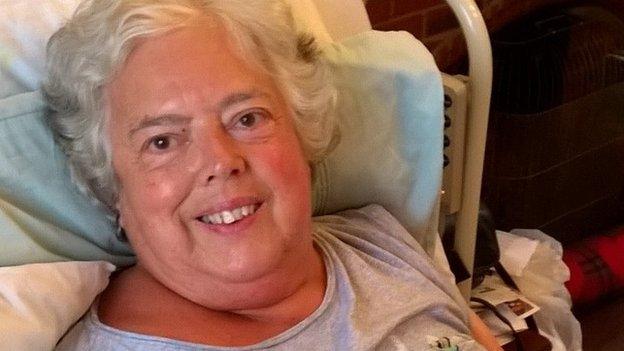
Jenny McMurtary was diagnosed with cancer last year
At Easter, Jenny McMurtary was given just days to live.
At Christmas, she had been diagnosed with a sarcoma, a rare cancer, in her shoulder, and it had spread.
But now she is making the most of the summer, with her husband, Michael.
"We've been to garden centres, local villages and even made a trip to Hayling Island," says the 69-year-old.
"You have to be careful not to push yourself too much, but I want to make the most of the time I have left."
How has she defied medical opinion?
Good care and personal determination have obviously played a key part.
But so has the help she has received from the local hospice service.
Jenny is one of 2,000 people cared for each year by Phyllis Tuckwell, external, a hospice group that covers West Surrey and North East Hampshire.
Contrary to popular opinion, much of the service operates out in the community.
The actual hospice building, in Farnham, looks after 350 in-patients a year, but an estimated 1,600 will receive help at home over the next year.
And several hundred more will be helped via the day centre service along with the support given to carers and relatives.
Tingling feeling
Jenny receives daily visits from the community team's nurses and therapists.
They help with personal care, but are also there to talk and lend support - and this can prove invaluable.
A few weeks ago, Jenny mentioned she had started experiencing a tingling feeling in her fingers.
Her hospice nurse immediately recognised something could be wrong, and scans were ordered that confirmed a tumour was pressing on her spine.
Jenny has since had radiotherapy to slow its growth.
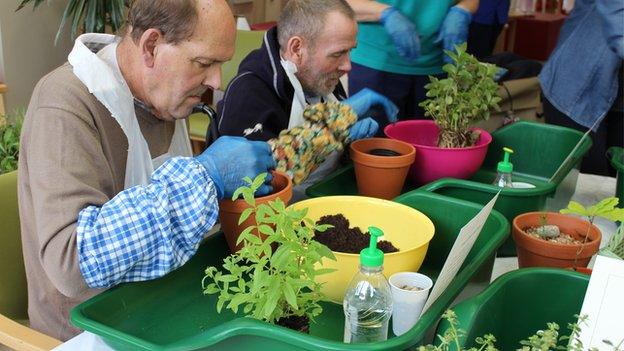
Horticulture is one of the therapies hospices offer patients
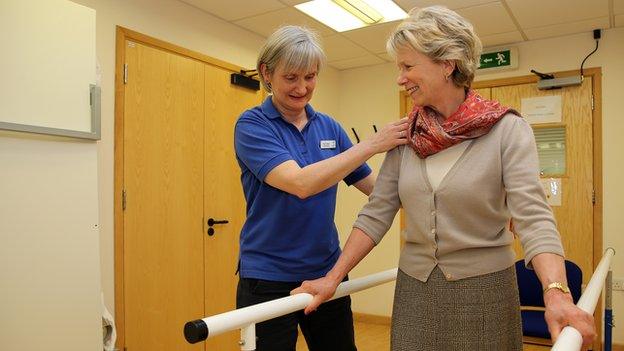
Physiotherapists are on hand to help patients at the day centre and inpatient hospice
Fiona Stamp, who coordinates the hospice's at-home team, says it aims to give people as good a "quality of life as possible and a good death".
"We are in a very privileged position - we are there with people when they are at their most vulnerable," she says.
"The people we see are amazingly courageous, it's an honour to be there to help them."
But despite playing a crucial role, the hospice movement remains very much a charitable enterprise.
Hospices care for 120,000 people a year - treble that if you count the family members they support.
That is about a fifth of people in the final year of life.
But only a fraction of their £1bn-a-year funding comes from the health service. For adult hospices, it is about a third. For children's, less than a fifth.
A survey , externalreleased this week by Hospice UK and Together for Short Lives suggests nearly a fifth have had their NHS funding cut, with half seeing it frozen.
Where services have seen increases, they are being asked to take on extra work.

The hospice movement
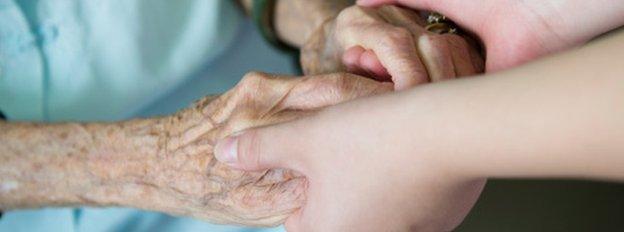
The modern hospice movement was pioneered in the 1950s by Cicely Saunders, who in 1967 founded the world's first purpose-built hospice - St Christopher's in London
There are now more than 200 in the UK
The hospice sector supports at least 120,000 people with terminal and life-limiting conditions each year and more than 200,000 family members through respite care and bereavement support
90% of hospice care is provided through day care and at-home services
Volunteers form the backbone of hospice care, with more than 125,000 people giving their time each year
Charitable hospices collectively need to raise £1.9m per day - amounting to more than £9,000 per hospice each day

Collectively, hospices need to raise £1.9m a day to stay afloat.
It means hospices have to take on a huge amount of "extra- curricular work".
Phyllis Tuckwell runs 19 shops as well as organising a host of fundraising events, including a dancing competition, fun runs and music festivals.
Marketing and communications head Tony Carpenter says: "Our turnover is £9m, and we only get £1.8m from the NHS.
"It means we are always under pressure to make sure we are raising enough money.
"But we do get fantastic support from the community.
"We employ about 220 staff but have nearly 1,000 volunteers on our books."
Hospice UK policy director Jonathan Ellis says this is typical of the situation facing many hospices up and down the country.
"NHS funding for hospice care is still very hit and miss, with sweeping variations across the country."
He believes change is needed. "As NHS funding comes under increasing pressure, we need a fairer, more sustainable system in place and we need this introduced soon.
"Failure by the NHS to act will be storing up huge problems for how our society supports terminally ill and dying people in the future."
But at the moment this seems unlikely. A spokeswoman for NHS England describes the role played by hospices as "invaluable", but says the amount of funding given would remain a decision for local managers.
Hospices, it seems, will still be left - largely - to fend for themselves.
Follow Nick on Twitter, external.
- Published4 June 2015
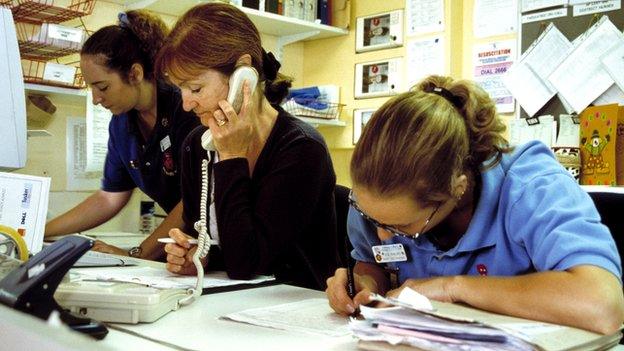
- Published5 March 2015
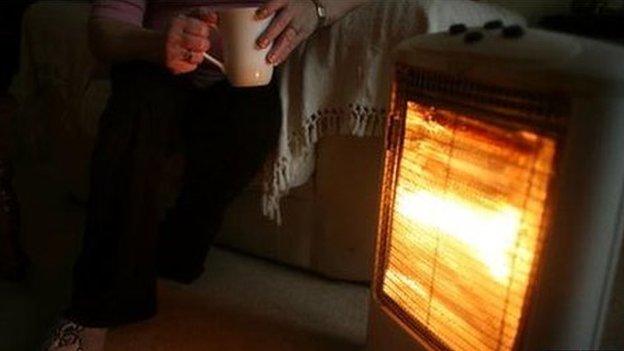
- Published13 June 2014
